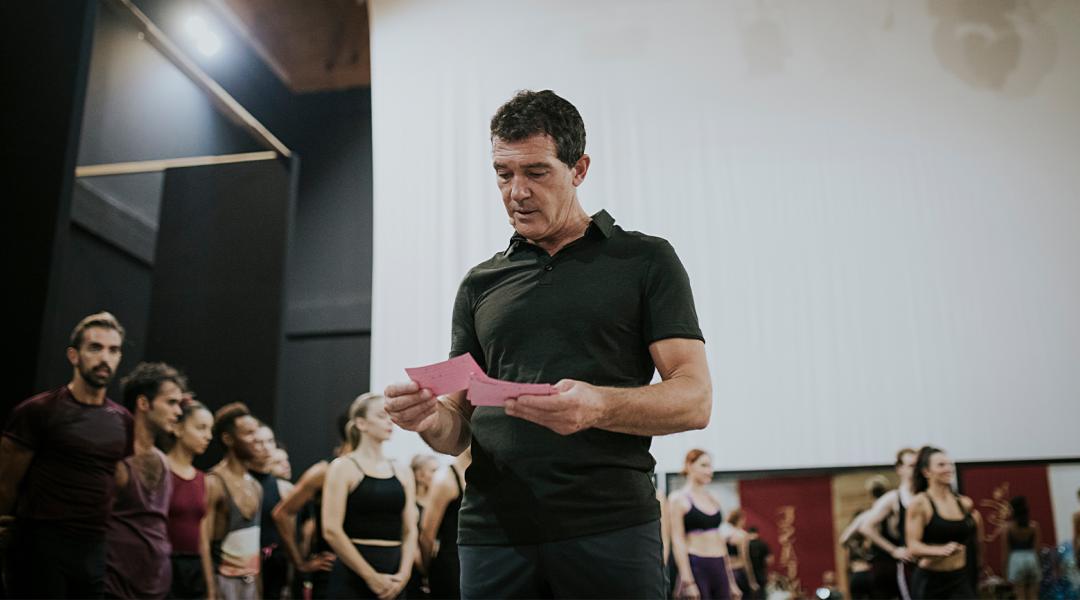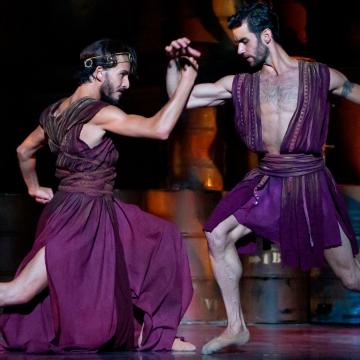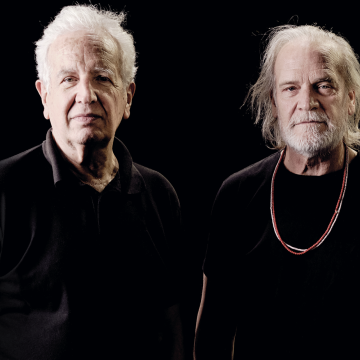Talent for comics and graphic novels is endless in Spain. Paco Roca, Ana Penyas, Paco Sordo, María Medem, Juanjo Guarnido, Teresa Valero… Do you want to get to know some of the best illustrators in the country?

Malaga’s Teatro del Soho Caixabank opens its curtains on November 15 with the international musical ‘A Chorus Line’, Antonio Banderas’ most personal project. What are the challenges he has set himself? What kind of performances will the refurbished theatre offer? What does this mean to him? The artist tells us in his own words.
In the more than 30 years that he has captivated his audience, either in the theatre or in front of the TV enjoying his films (both as an actor and director), he hasn’t forgotten where he comes from. Nor have the awards and nominations he has received on the world’s most iconic red carpets swayed him. Clearly, Antonio Banderas (Malaga, 1960) is one of Spain’s most international artists and now, compelled by his commitment to his homeland, he immerses himself in his most personal project, Teatro del Soho Caixabank.
As well as investing money, ample time and plenty of enthusiasm, Banderas has rolled up his sleeves from the first day to try to turn this new cultural space into a landmark for theatre enthusiasts. With this goal in mind, he has managed to bring Broadway to Malaga with the renowned musical A Chorus Line, and not only that, he is co-directing and performing himself. He has also surrounded himself with other distinguished professionals such as Lluís Pasqual, who will manage Teatro del Soho Caixabank, and Baayork Lee, with whom he will direct the musical itself onstage at this theatre in Malaga.
What does the opening of Teatro del Soho Caixabank mean to you?
Firstly, it represents my commitment to my homeland and my city. Many institutions, citizens, businesses, etc. are going to be involved in this project, and we want to fully participate in the cultural expansion Malaga is currently experiencing. Secondly, this is my commitment to my people: the time has come to teach new generations everything I have learnt throughout my career, to make the most of my relationships with foreign professionals so that they’ll come to give talks and workshops and, thus, guide Malaga’s youth. In short, opening the theatre is a dream that is coming true.
What are the challenges or goals that Teatro del Soho is setting itself in the short-term?
As I mentioned earlier, we want to become part of the city’s cultural fabric not only as a performance centre, but also for production. Additionally, we want to focus on training, because our relationship with the educational segment is very important to us. We hope to become a leading theatrical centre in the future. This is why we’ll open our doors with a demanding and complex performance such as A Chorus Line, with a new company that will tour in Bilbao, Barcelona and Madrid. We want to change the usual process and for Malaga to be the city hosting the official premieres, instead of just hosting productions that have already premiered elsewhere.

As well as being a patron of Teatro del Soho Caixabank, Antonio Banderas will participate as an actor and co-director of the musical ‘A Chorus Line’. © Teatro del Soho CaixaBank
As well as being your hometown, what role does Malaga play in the national and international theatre scene?
Andalusia has always been a pioneer in creative theatre. We mustn’t forget that Salvador Távora was born here, for example. In Malaga, since after the Reconquista, members of the Hermandad de la Caridad held charity theatre performances to help the poor. This is how the first theatre in the city, Casa de Comedias, emerged. We can say that there has always been a theatrical tradition here.
On the one hand, what stimulus can Teatro del Soho Caixabank provide or offer the city?
Most Andalusian theatres are public. By contrast, Teatro del Soho Caixabank will be the only large-scale private theatre in Andalusia. This will be our distinctive feature, because we want to offer our own productions without depending on the Administration or its budgets.
On the other hand, what obstacles do you believe you may encounter with this new venture?
All private initiatives, especially within the cultural sector, entail a significant risk. But I’m optimistic by nature and don’t like to think about obstacles, which always paralyse you. I prefer to believe that Malaga’s citizens will respond positively to this project and will become involved in it, that it will settle down in time and, who knows, maybe it will lead to a Law of Patronage that would enable this kind of private initiative to flourish...
“There is so much talent. The level of musical theatre has improved throughout Spain.”
As you mentioned beforehand, you are premiering with A Chorus Line, a well-known international musical, but what kind of performances can we expect from Teatro del Soho? Will there be a strong national offering?
Lluís Pasqual is the director of the theatre and he will introduce the rest of the programme after A Chorus Line ends until the summer, as soon as we open the theatre. This first season, we will be learning the ropes because we started everything late, due to construction work on the theatre. It has been impossible to plan a normal season, without having the necessary time for production, hiring... Nevertheless, thanks to his experience at the head of theatres such as Teatre Lliure, Centro Dramático Nacional or the Odéon Theatre in Paris, Lluís will definitely ensure Soho Caixabank’s projection and relationship with other national and foreign theatres.
What do you think about the status of Spanish theatre today? Is there acting talent in Spain?
There is so much talent. We have seen it during the auditions for A Chorus Line, which took place in Malaga, Madrid and Barcelona. Many well-prepared, impeccable actors, capable of dancing, singing and acting at the highest level, came to all three cities. The truth is that the level of musical theatre has substantially improved throughout Spain. Now there are musical theatre schools, which didn’t exist before, and the interest in this genre has grown, both within the audience and among actors.



